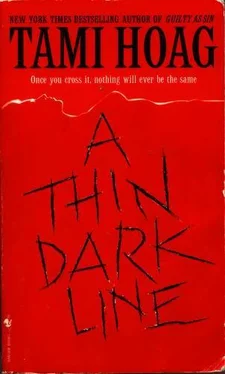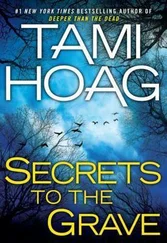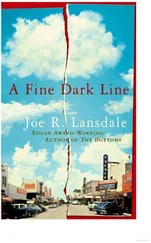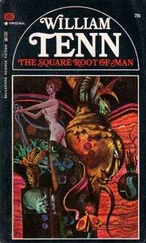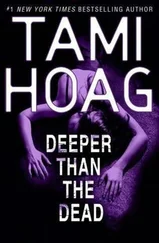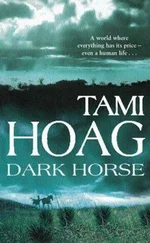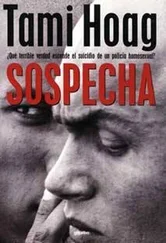Panic surged through her. Could the fisherman have been someone from the SO? What if Noblier had reinstated the surveillance? What if Sergeant Hooker had come to this spot on his day off in search of bass and sac-a-lait? If someone saw her with Renard, she was going to be way up shit creek.
"Got anything in that boathouse?" Nodding to a small, low shed of rusting corrugated metal that jutted out over the bayou, she shifted the position of her chair, turning her back more squarely to the fisherman.
"An old bass boat. My brother likes to explore the bayou. He's something of a nature buff. Aren't you, Victor?"
Victor stepped out from behind a swath of drapery inside the French door Marcus had left cracked open. There was no guilt on his face, no embarrassment at having been caught spying. He stared at Annie, turning his body sideways, as if that might somehow fool her into thinking he wasn't looking at her.
"Victor," Marcus said, rising gingerly, "this is Annie Broussard. Annie saved my life."
"I wish you wouldn't keep saying that," Annie muttered.
"Why? Because you're modest or because you wish you hadn't?"
"I was doing my job."
Victor sidled toward the table for a better look at her. He was dressed in pants an inch too short and a plaid sport shirt buttoned to the throat. He resembled Marcus in his normal, unremarkable state: plain features, fine brown hair neatly combed. Annie had seen him around town from time to time, always in the company of either Marcus or his mother. He held himself too carefully and stood too close to people in lines, as if his sense of space and the physical world were distorted.
"It's nice to meet you, Victor."
He squinted in suspicion. "Good day." He glanced at Marcus. "Mask, no mask. Sound and sound alike. Mimus polyglottos. Mockingbird. No. No." He shook his head. "Dumetella carolinensis. Suggest the songs of other birds."
"What does that mean?" Annie asked.
Marcus attempted a bland smile. "Probably that you remind him of someone. Or more precisely, that you resemble someone you aren't."
Victor rocked himself a little, muttering, "Red and white. Now and then."
"Victor, why don't you go get your binoculars?" Marcus suggested. "The woods are full of birds today."
Victor cast a nervous look over his shoulder at Annie. "Change, interchange, mutate. One and one. Red and white."
He held himself still for a moment, as if waiting for some silent signal, then hurried back into the house.
"I expect he sees a resemblance between you and Pam," Marcus said.
"Did he know her?"
"They met at the office once or twice. Victor periodically expresses a curiosity in my work. And of course he saw her picture in the papers after… He reads three newspapers every day, cover to cover, every word. Impressive until you realize he'll be held in thrall by the sight of a semicolon while the bombing of the federal building in Oklahoma City meant nothing whatsoever to him."
"It must be difficult to deal with his… condition," Annie said.
Marcus looked to the open door and the empty dining room beyond. "Our cross to bear, my mother says. Of course, she takes great satisfaction from having to shoulder the load." He turned back toward Annie with another wan smile. "Can't pick your relatives. Do you have family here, Annie?"
"In a manner of speaking," she said evasively. "It's a long story."
"Family stories always are. Look at Pam's daughter. What a family story she'll have, poor little thing. What will, become of her grandfather?"
"You'd have to ask the DA," she said, though she thought she could give an accurate guess as to what would become of Hunter Davidson: nothing much. The outcry against his arrest had been considerable. Pritchett would never risk the wrath of his constituents by pressing for a trial. A deal would likely be cut quickly and quietly-maybe already had been-and Hunter Davidson would be doing community service for his attempted sin.
"He tried to kill me," Renard said with indignation. "The media is treating him like a celebrity."
"Yeah. There's a lot of that going around. You're not a well-liked man, Mr. Renard."
"Marcus," he corrected her. "You're at least civil to me. I'd like to pretend we're friends, Annie."
The emotion in his eyes was soft and vulnerable. Annie tried to imagine what had been in those eyes that black November night when he had plunged a knife into Pam Bichon.
"Considering what happened to your last 'friend,' I don't think that's a very good idea, Mr. Renard."
He turned his head as quickly as if she had slapped him, and blinked away tears, pretending to focus on the fisherman down the bayou.
"I would never have hurt Pam," he said. "I've told you that, Annie. That remark was deliberately hurtful to me. I expected better from you."
He wanted her contrition. He wanted her to give him another inch of control, the way he had when he had asked to use her name. A little thing on the surface, but the psychological sleight of hand was smooth and sinister. Or she was blowing it out of proportion and giving this man more credit than he deserved.
"It's just healthy caution on my part," she said. "I don't know you."
"I couldn't hurt you, Annie." He looked at her once again with his watery hazel eyes. "You saved my life. In certain Eastern cultures I would give you my life in return."
"Yeah, well, this is South Lou'siana. A simple thanks is sufficient."
"Hardly. I know you've been suffering because of what you did. I know what it is to be persecuted, Annie. We have that in common."
"Can we move on?" Annie said. The intensity in his expression unnerved her, as if he had already determined that their lives would now be intertwined into eternity. Was this how a fixation began? As a misunderstanding of commitment? Had it been this way between him and Pam? Between him and his now-dead girlfriend from Baton Rouge?
"No offense," she prefaced, "but you have to admit you have a bad track record. You wanted to be involved with Pam, and now she's dead. You were involved with Elaine Ingram back in Baton Rouge, and she's dead."
"Elaine's death was a terrible accident."
"But you can see how it might give pause. There's a rumor that she was going to break off your relationship."
"That's not true," he insisted. "Elaine could never leave me. She loved me."
Could never, not would never. The choice of words was telling. Not: Elaine would never leave him of her own accord. But: Elaine could never leave him if he wouldn't allow it. Marcus Renard wouldn't have been the first man to use the "if I can't have her, no one will" rationale. It was common thinking among simple obsessionals.
Doll Renard chose that moment to come onto the terrace. She wore a dotted polyester dress twenty years out of date and an enormous kitchen apron. The ties wrapped around her twice. She was thin in the same way Richard Kudrow was thin-as if her body had burned away from within, leaving bone and tough sinew. She offered no smile of welcome. Her mouth was a thin slash in her narrow face.
Annie thought she saw Marcus wince. She rose and extended her hand.
"Annie Broussard, sheriff's office. Sorry to disturb your Sunday, Mrs. Renard."
Doll sniffed, grudgingly offering a limp hand that collapsed in Annie's like a pouch of twigs. "Our Sunday is the least of what you people have disturbed."
Marcus rolled his eyes. "Mother, please. Annie isn't like the others."
"Well, you wouldn't think so," Doll muttered.
"She's going to be looking into some things that could help prove my innocence. She saved my life, for heaven's sake. Twice."
"I was just doing my job," Annie pointed out. "I am just doing my job."
Doll arched a penciled-on brow and clucked her tongue. "You've managed to misread the situation yet again, Marcus."
Читать дальше
